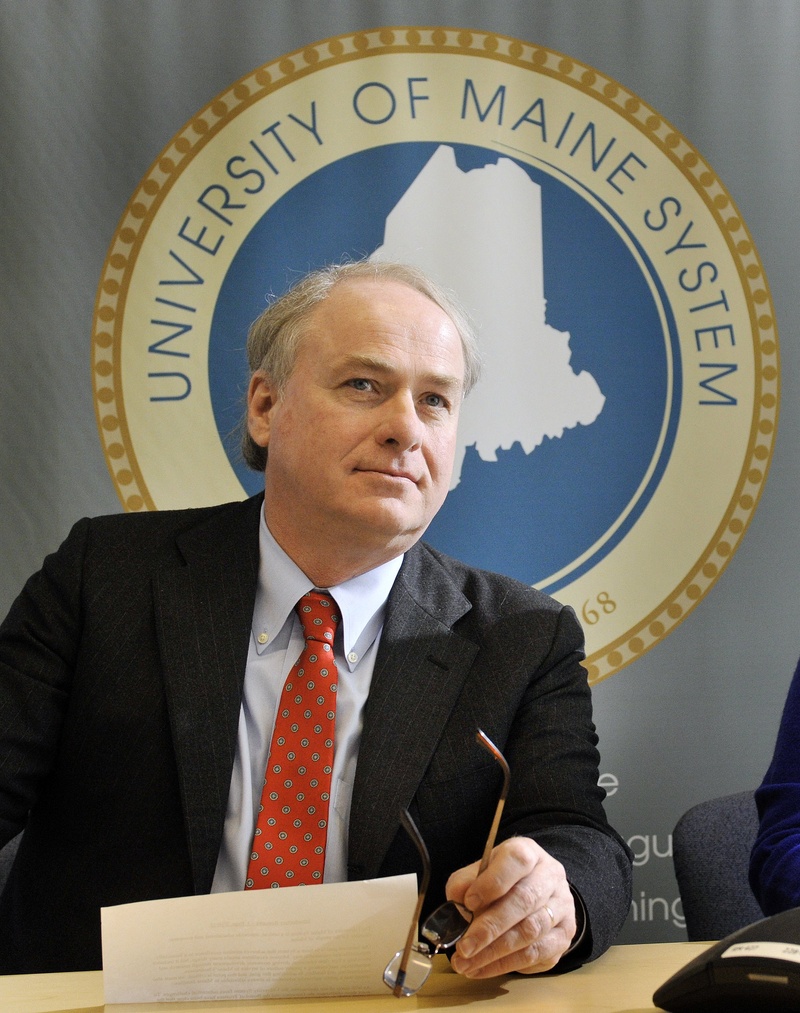The new chancellor of the University of Maine System announced today that he has suspended all future discretionary salary increases and will review recent raises granted through a systemwide position-review program.
James Page, who became chancellor on Tuesday, said he also plans to assess all compensation policies as part of a comprehensive review of system operations requested by the Board of Trustees when they hired him.
Page responded to today’s story in the Portland Press Herald about the financial impact of the system’s eight-year-old Salaried Employees Compensation and Classification Program at the University of Southern Maine.
“I am troubled by these reports,” Page said, adding that he’s glad the information came to light.
From now on, Page said, no discretionary salary increases will be given without his approval.
Page declined to say exactly what troubled him in the story, which reported that USM gave 44 salary increases totalling $242,000 in the budget year that started July 1, 2011, as a result of position reviews initiated by employees or supervisors.
The position-review program was instituted in 2005 to ensure that employees were fairly compensated for taking on additional duties and paid salaries in line with other universities nationwide.
The practice of giving discretionary increases continued while most system employees received no regular raises during the last three years.
USM, which gave nearly $1 million in discretionary raises in the last four years, now faces $5.1 million in budget cuts in the coming year that likely will result in staff reductions.
“I support the Board of Trustees goal of giving broad discretion to its presidents in how they organize their teams for success,” Page said. “That being said, the Board of Trustees has directed me to conduct a comprehensive review of the entire system to ensure that we meet our mission of excellence in a financially responsible and sustainable way.”
Given that 70 percent of the seven-university system’s costs are personnel-related, Page said, compensation will factor greatly in his review.
Page said he will be reviewing the annual impact of the position-review program at universities throughout the system. If any changes are warranted, he will make recommendations to the trustees, he said.
Because the system is a public instution, Page said, “any compensation programs and policies have to reflect the people of Maine.”
He said Mainers have an “inherent sense of equity and fair play” and a “great respect for people’s knowledge and experience.”
It’s sometimes difficult to balance those two aspects, Page said, but that will be his goal in reviewing the system’s compensation policies and practices.
Send questions/comments to the editors.



Comments are no longer available on this story